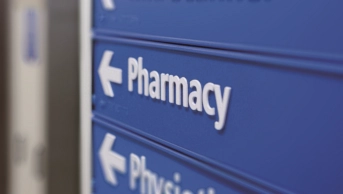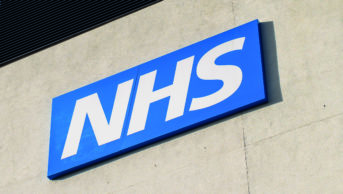
Courtesy of Wasim Baqir
Some 29% of hospital trusts referring patients to community pharmacies in England through the NHS Discharge Medicines Service (DMS) are already meeting incentive targets set by the NHS, a national pharmacy lead has said.
The DMS, which launched in February 2021, enables NHS trusts to refer patients to community pharmacy after hospital discharge, so that pharmacy staff can check that any medicines awaiting collection are still appropriate.
In March 2022, NHS England announced plans to incentivise trusts to refer between 0.5% and 1.5% of all patients through the DMS during 2022/2023 as part of its ‘Commissioning for Quality and Innovation’ (CQUIN) framework, which makes a proportion of NHS trust income conditional on meeting targets.
Speaking at the Clinical Pharmacy Congress in London on 13 May 2022, Wasim Baqir, senior pharmacist for the pharmacy integration programme at NHS England, said the targets had been “purposely left this low”.
“What we want to do is get half the trusts in the country who are not doing this to start doing this, to get your systems up and running, to get your relationships with community pharmacy and primary care set up,” he told delegates.
In January 2022, The Pharmaceutical Journal revealed that community pharmacies across England were experiencing a wide variation in the number of patients referred to them by trusts, with a quarter of referrals made coming from trusts in one area of England — the Cheshire and Merseyside Sustainability and Transformation Partnership.
However, Baqir added that the CQUIN target was “less about referrals and more about getting people to do it”.
“The other half of the country are doing it and for them, we really want them to start ramping up numbers and using this as an opportunity,” he said.
Presenting referral rate data from November 2021 to January 2022, Baqir also told delegates that around 24 trusts from the January data set were actually making referrals above the 1.5% target.
According to a slide in the presentation, 177 trusts had made 26,783 referrals through the service in that time, and 52 trusts (29% of all trusts that had made referrals) have met the lower CQUIN threshold target of referring 0.5% of all discharged patients.
“If every trust in the country reached 1.5%, that’s between 18,000 and 42,000 30-day readmissions avoided,” Baqir explained.
“If every trust got to 16%, which is the highest performing trust at this point in time, we’re talking about 450,000 people being prevented from going back into hospital within 30 days.”
As of February 2022, slides shown by Baqir revealed that 99,456 referrals had been claimed by community pharmacies, adding that between 4,324 and 9,945 30-day readmissions may have been avoided.
On 12 January 2022, NHS England said that patients “who receive this service are less likely to be readmitted (5.8% vs. 16% at 30 days) and spend fewer days in hospital (7.2 days on average compared to 13.1 for patients who did not receive the service) where they are readmitted”.
This followed an earlier analysis of referral data by NHS England, which suggested that the DMS could have helped avoid 17,238 hospital bed days in three months.
Read more: Community pharmacy hospital discharge service to launch in Scotland


